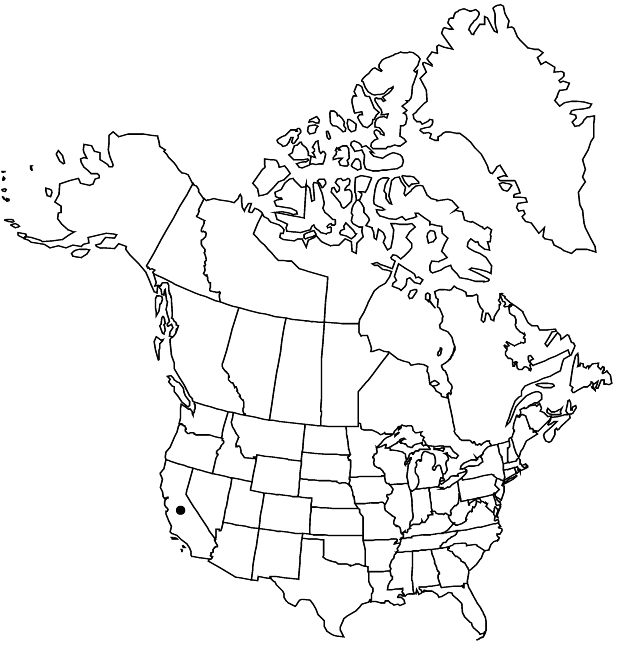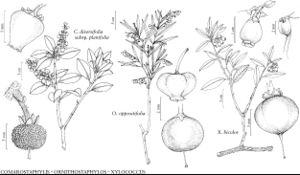Xylococcus bicolor
Trans. Amer. Philos. Soc., n. s. 8: 259. 1842 ,.
Common names: Mission manzanita
Illustrated
Synonyms: Arctostaphylos bicolor (Nuttall) A. Gray
Treatment appears in FNA Volume 8. Treatment on page 404.
Plants 1.5–4(–7) m. Leaves: petiole 0.5–1 mm; blade dark green adaxially, 1.8–5.5 × 0.8–2.3 cm, base cuneate, apex acute. Inflorescences recurved, unbranched. Flowers: sepals dark red, tomentose, lobes reflexed; corolla 7–9 mm; nectary disc crateriform; style elongate; stigma minute. Drupes 5–8 × 6–10 mm. Seeds ovoid. 2n = 26.
Phenology: Flowering Dec–Jul.
Habitat: Chaparral, dry slopes
Elevation: 0-700 m
Distribution
Loading map...

Calif., Mexico (Baja California).
Discussion
Xylococcus bicolor has a limited distribution in southern California, occurring on the coastal plain and in the Peninsular and Transverse ranges of Los Angeles County to San Diego County, and on Santa Catalina Island.
Selected References
None.
Lower Taxa
None.
